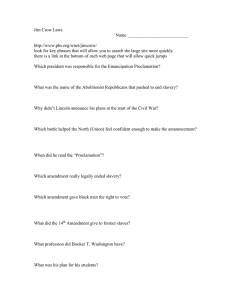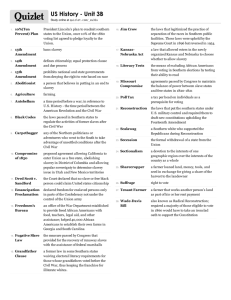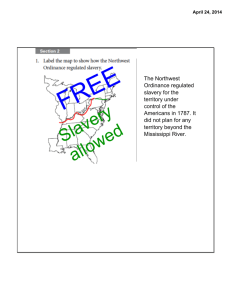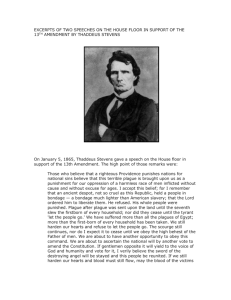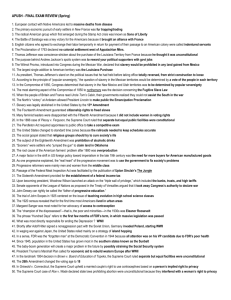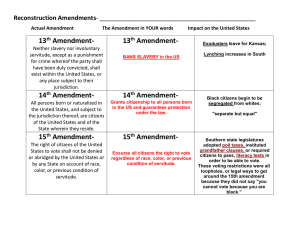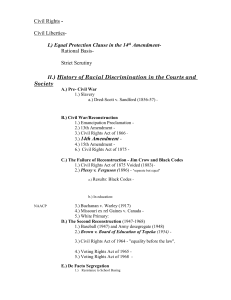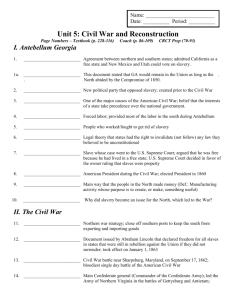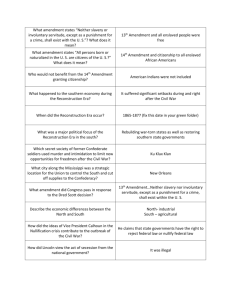The 13th Amendment
advertisement
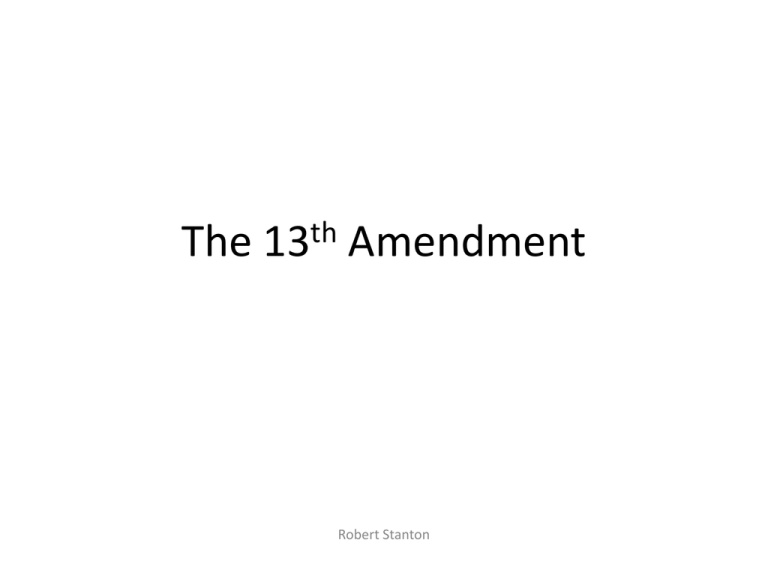
The th 13 Amendment Robert Stanton I. Historical Document- The 13th Amendment • “Neither slavery nor involuntary servitude, except as a punishment for crime whereof the party shall have been duly convicted, shall exist within the United States, or any place subject to their jurisdiction.” II. Main Idea • This amendment is the United States’ official action against slavery by abolishing it except as punishment for crimes. This is indicating that the U.S. is taking another step towards peace and equality. III. Point of View or Bias • Leaders believed the foundation of equality in the US was not merely based on the concept of religious freedom, but also, on the concept of human equality. IV. Inferences • The Emancipation Proclamation was a major influence on the 13th amendment • The Northwest Territory Ordinance of 1787 • 1883 Supreme Court Decision defined the 13th amendment to cover all races “Negro slavery alone was in the mind of the Congress which proposed the thirteenth article, it forbids any other kind of slavery, now or hereafter.”
